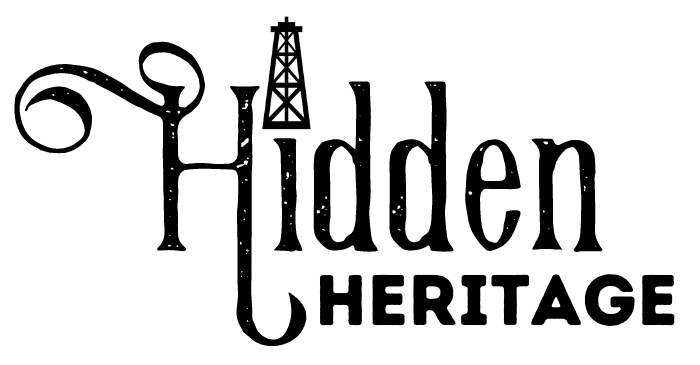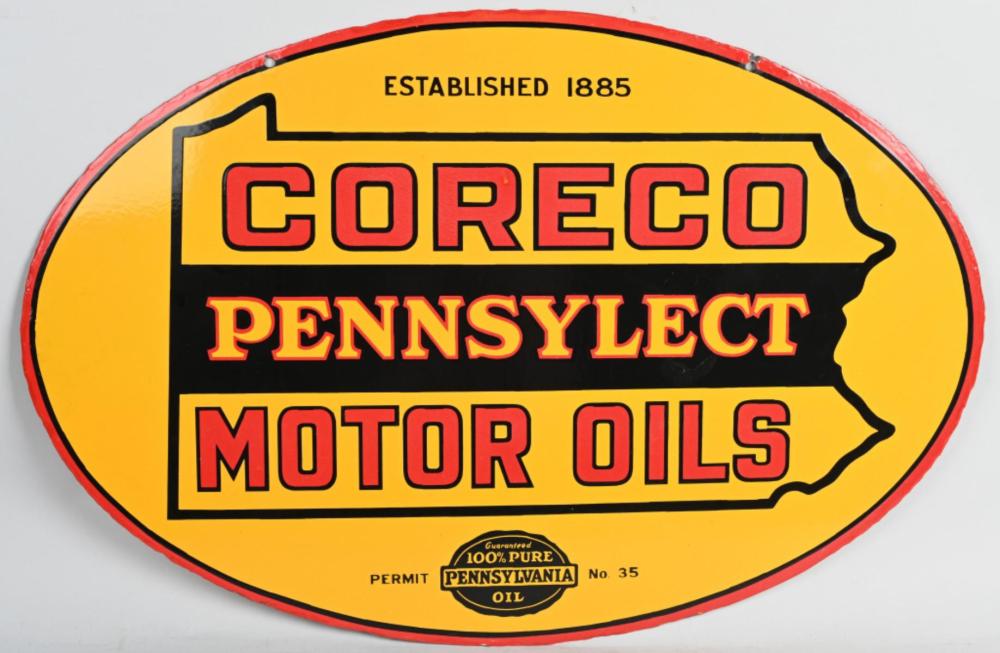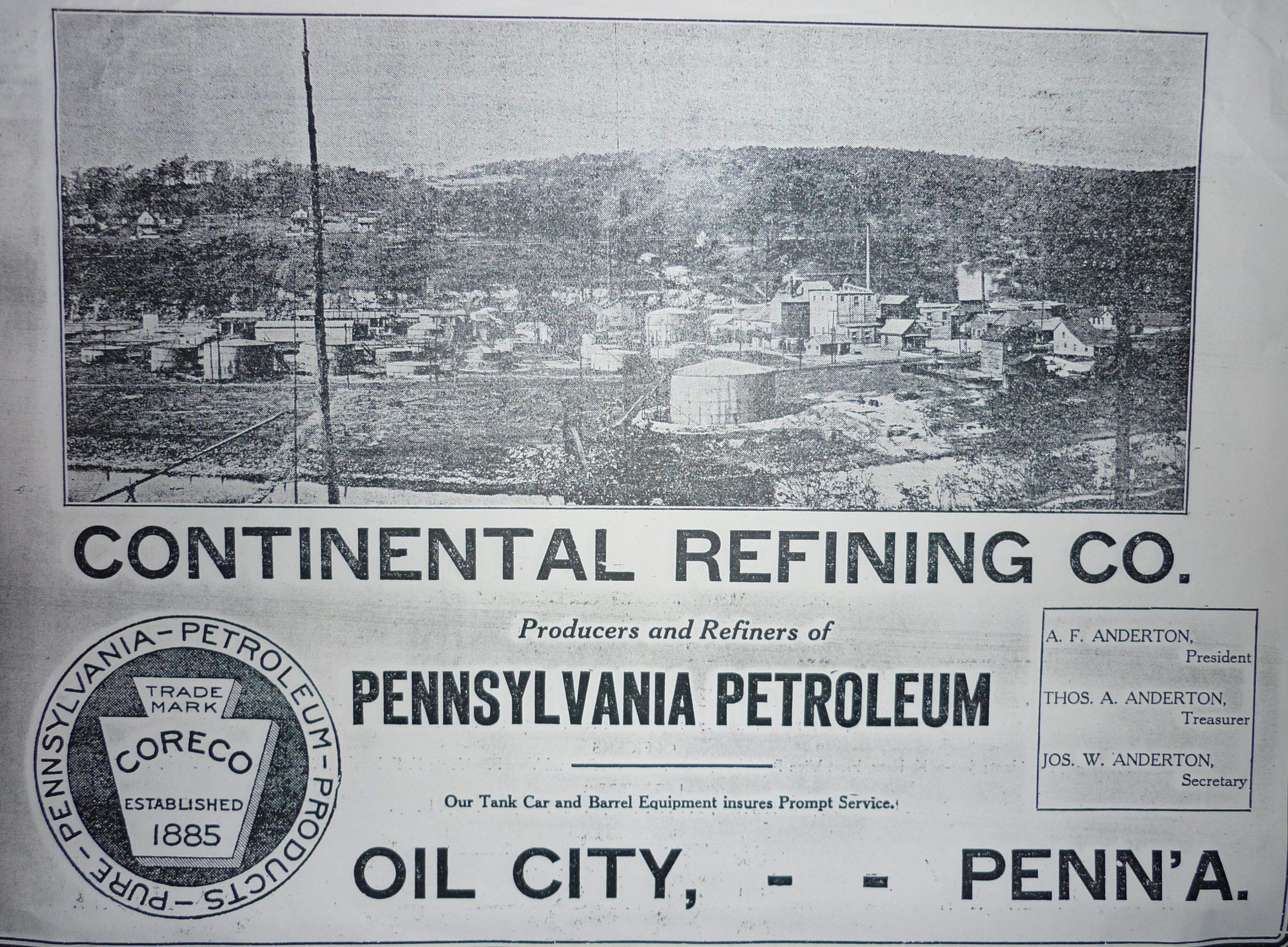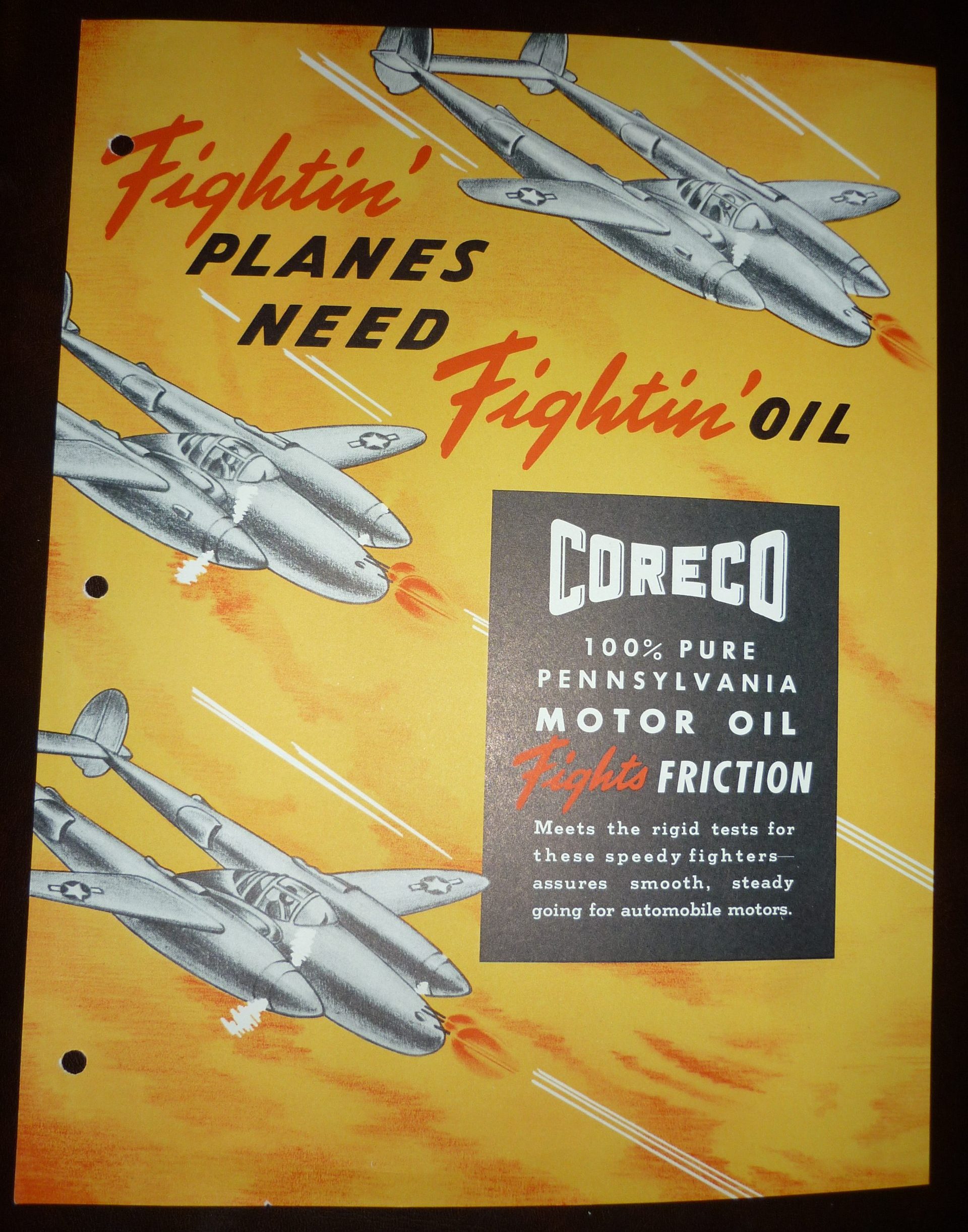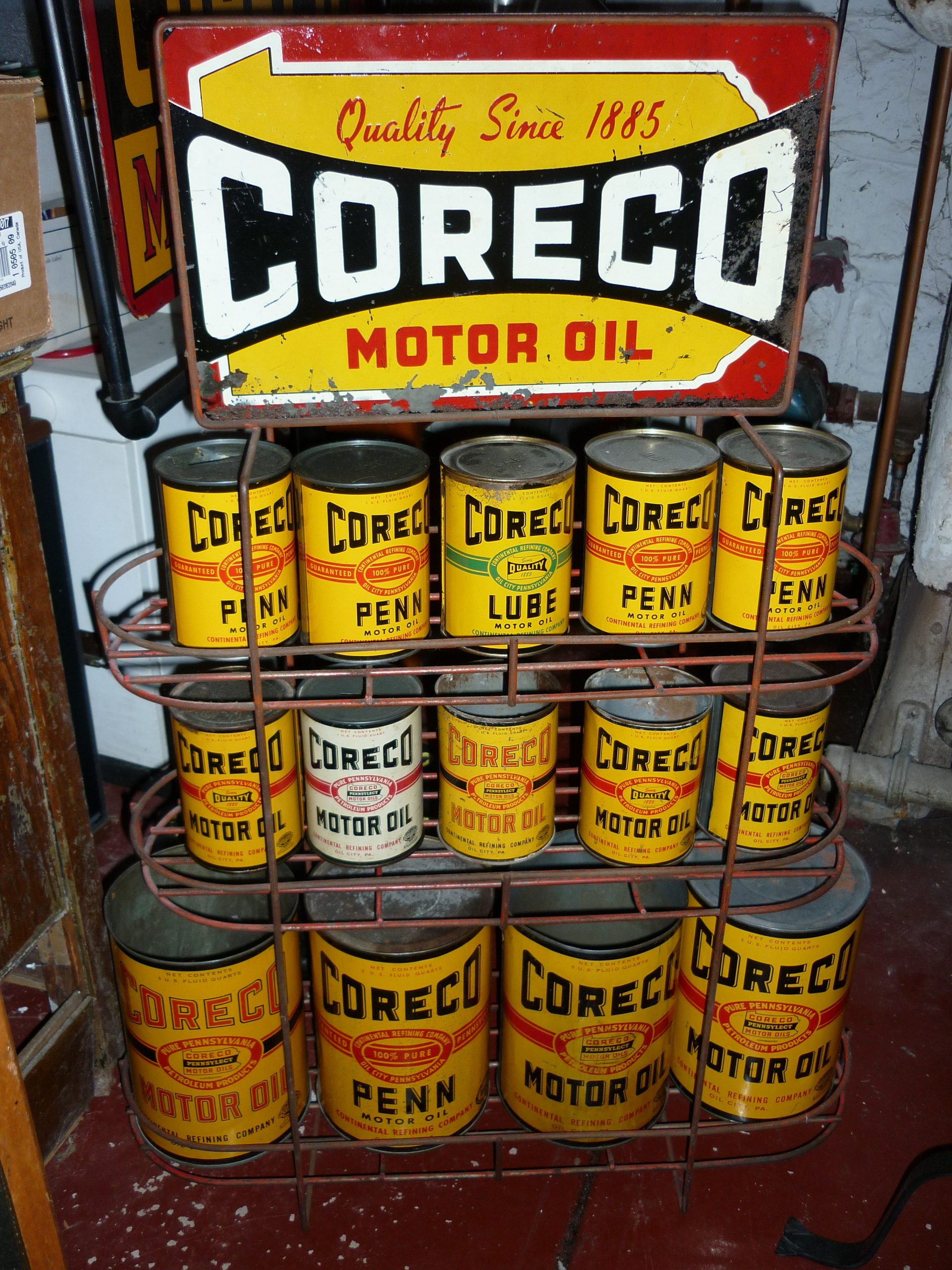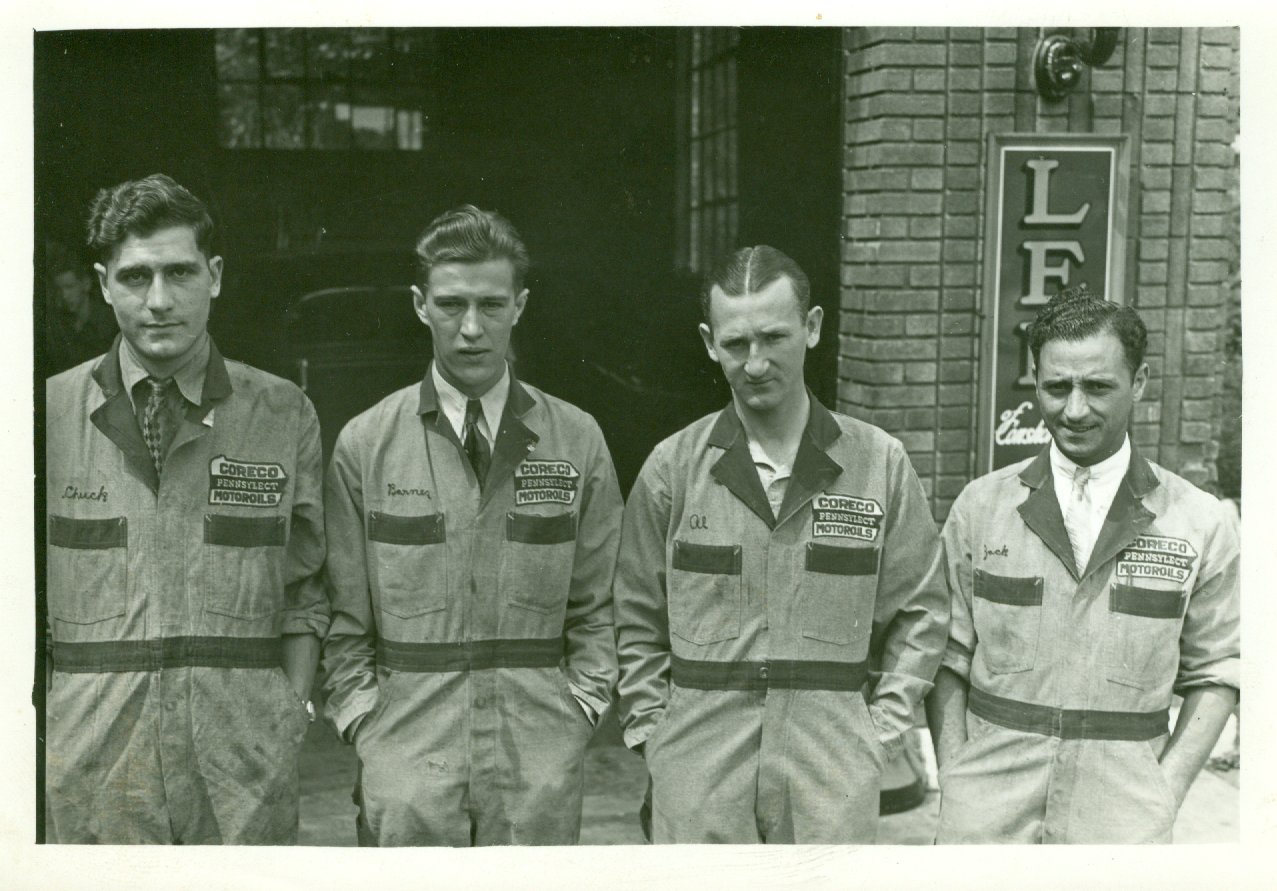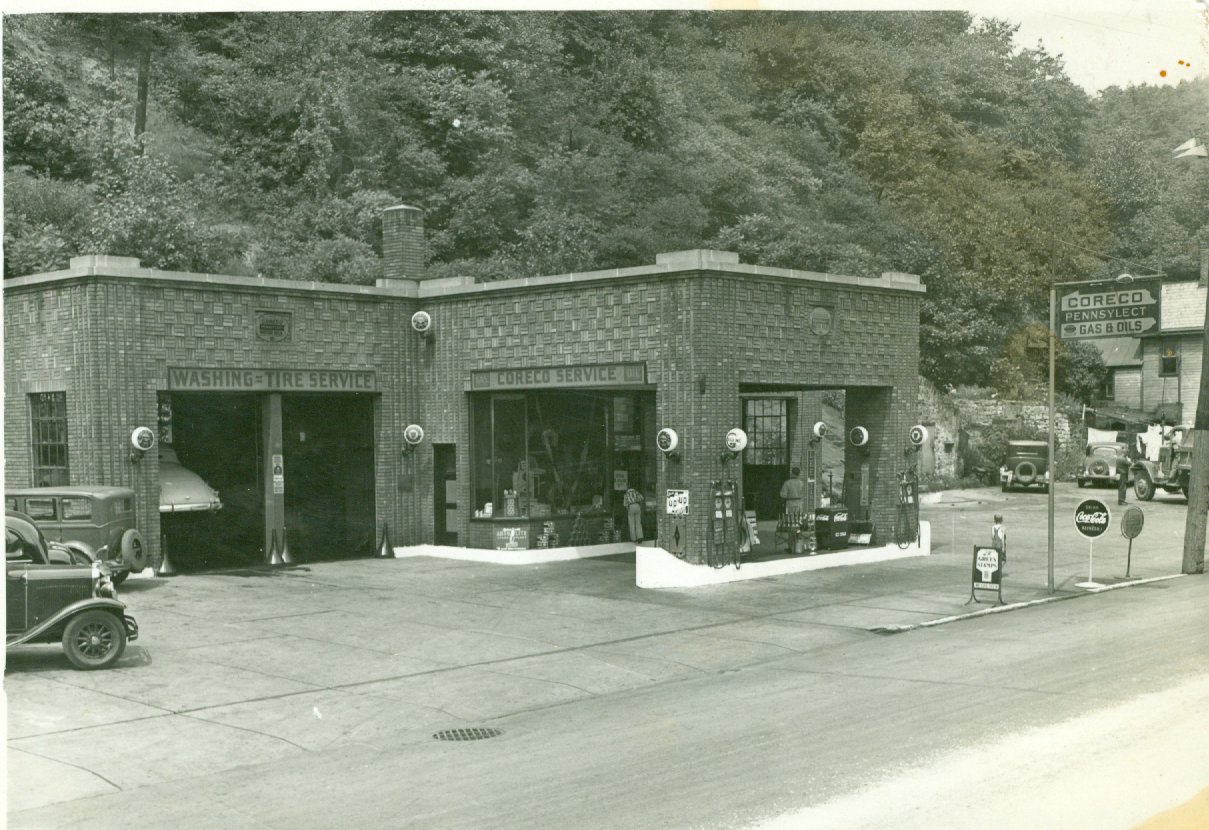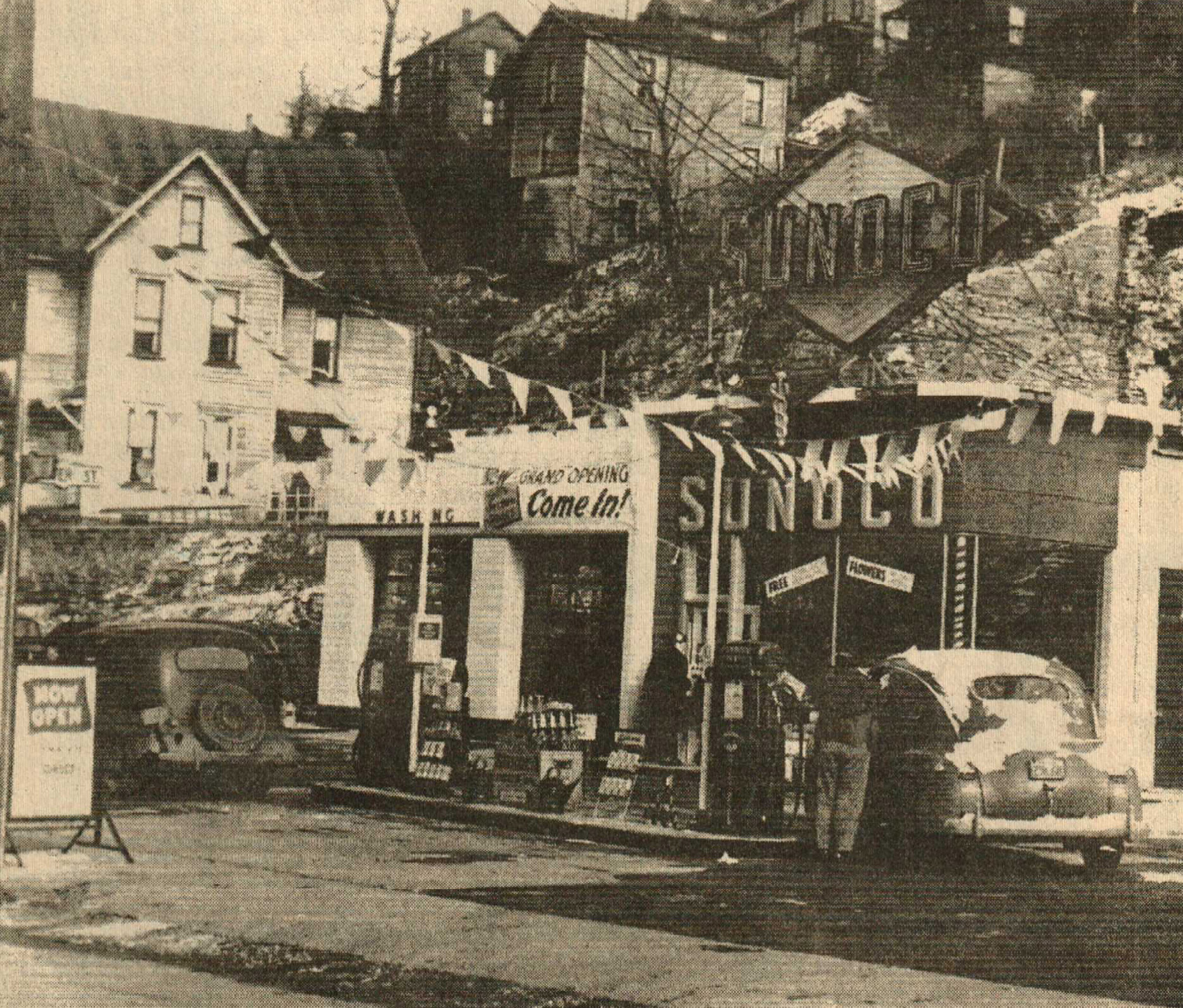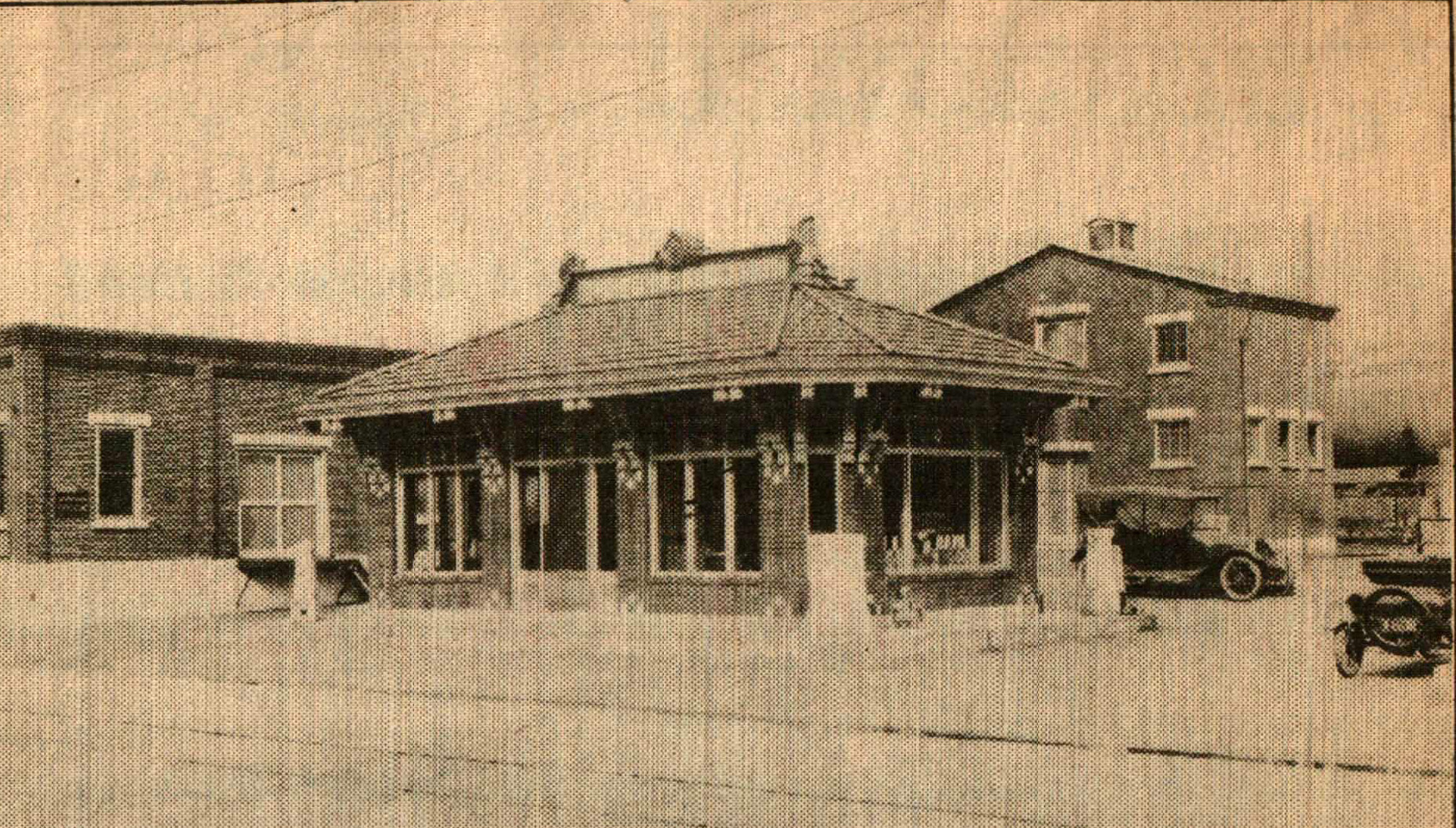Coreco
- Judy Etzel
- April 28, 2023
- Hidden Heritage
- 12609
The Oil Valley boasted dozens of oil companies and several refineries in its early history. Key among the refiners were Quaker State, Pennzoil and Wolf’s Head. Altogether, the trio accounted for more than two-thirds of all motor oil sold in the U.S.
However, there was a fourth entity that boasted a sizable refining capacity plus a scattering of gasoline and lube stations throughout the region.
It was known as the Continental Oil Co., an 8,000-barrel a day refinery that sprawled along both sides of Route 8 just north of Oil City. It was at one time a major player among the oil region’s numerous refining companies.
Dave Anderton of Oil City, whose great-grandfather Thomas Anderton founded the company in 1885 with two other men, described the business as “one of the original oil companies in the oil valley” during an Oil City Heritage Society program in 2000. The elder Anderton was an Englishman who immigrated to Pittsburgh in 1862 where he became a barrel-maker with his brother.
Thomas Anderton then took a job at the Independent Refinery near Titusville and briefly worked as a grocer in Oil City.
In 1885, he joined with partners Louis Morris and Louis Walz to form the Continental Refinery Ltd. A year later, Anderton bought out his partners and changed the name to Continental Refining Co. Walz later formed a partnership that founded Penn Refining Works, a predecessor of Pennzoil.
Anderton died in 1915 and his sons Joseph, Aloysius and Thomas Jr. assumed ownership of Continental Refining Co.. The refinery was expanded and covered much of the 21-acre property between Oil Creek and the BNY & PRR tracks.
The operation featured brick stills, oil tanks, a boiler house, outbuildings, a refinery, 50 railroad tank cars and much more. News accounts noted that since the owners “spared no expense,” the refinery was known as “one of the most progressive in the Oil Region.”
The company, said Anderton, was “a fully integrated small oil company that refined and marketed Pennsylvania Grade Crude Oil and distributed it primarily in northwestern Pennsylvania.”
The product line was known as Coreco, a shortened term for Continental Refining Co. It also did business as Coreco Penn, DePennDo base oil, Penntinental and Pennsylect.
The products ranged from lubricants to dry-cleaning fluids, glass cleaner, fly spray, livestock spray and more. Continental Refining also owned a “secret formula for the manufacture of hair oil tonic,” according to company records.
“As the reputation and goodwill of the company grew, the export of products was established to foreign nations like Greece, Italy and Switzerland,” said Anderton.
In its heyday during the 1920s, Continental boasted a refinery workforce of about 100 people. It also owned a number of gasoline stations, including 50 in Canada.
While Continental Refining was highly successful during the 1920s, two things occurred at the end of that decade that would put the refinery out of business.
On July 18, 1929, there was an explosion in the filter house and the resulting fire caused more than $300,000 in damages and hurt six refinery employees. The blaze raged for more than 12 hours. That same time frame marked the beginning of the Great Depression and that led to the larger oil companies monopolizing the crude oil supply. In the early 1930s, Continental Refining went into receivership. It was bought by Al Weingard and Robert Anderton, Tom’s father. Weingard served as president and Anderton was named plant manager. Other officers included Todd K. Glenn, vice president, and Benjamin McFate, secretary. The corporate offices were in the Veach Building.
In World War II, Continental and other local refineries joined together to produce aviation fuel at a new high octane plant on the Rouseville Road. However, a disastrous fire in July 1944 destroyed the plant and killed eight men and injured another dozen.
In 1950, the Continental Refinery was shut down due to insufficient crude oil supplies and keen competition from other area refineries.
Other Refineries
Oil City’s nickname as “the Hub of Oildom” was rightfully bestowed.
Two refineries were situated within the city, according to the 1887 Beers Atlas of Oil City. They were the Imperial Refinery in Siverly (10,000 barrels a month), then known as Siverlyville, and Union Gasoline Works (15,000 barrels per month).
However, there were six other refineries located just out of town that maintained corporate offices in Oil City. They were Continental Refining, Independent Refining, Pennsylvania Refinery, Astral Refinery and Excelsior Oil Works.
Those refineries, noted the Beers Atlas, consumed “from 5,000 to 10,000 barrels a day” in changing crude oil to lubes and gasoline. Those operations promised a successful future for Oil City.
“With the introduction of tank vessels for ocean transportation and the improved methods of shipment to all seaboard cities, it becomes a fixed fact that Oil City will become the refining center of the world,” boasted the 1887 atlas.
By the late 1920s, the mid-continent and western oil fields had become the top-producers of petroleum in the U.S. There were more than 500 operating refineries across the nation with the historic oil valley claiming just 10. They were Atlantic Refining (Franklin), Galena-Signal Oil (Franklin), Emlenton Refining (Emlenton), Continental Refining (Oil City), Crystal Oil Works (Oil City), Penn-American Refining (Rouseville), Independent Refining (Oil City), Empire Oil Works (Reno), Franklin Oil Works (Franklin) and Advance Oil (Oil City).
By 1992, only Pennzoil operated a refinery (at Rouseville) in Venango County.
Young’s Gas Station
A new Sunoco gas station opened Jan. 19, 1949, at the downtown Oil City intersection of Plummer, Center and Spring streets. The station, owned by Stub Young, was built on the site of the former Oil City Opera House, constructed in 1872.
The gala opening saw the sale of more than 12,000 gallons of gasoline during a three-day celebration of the new business. By the end of the grand opening, Young had given out 24 electric alarm clocks, 1,300 flowers and hundreds of quarts of oil.
Young later opened Young’s Tires on the city’s South Side in the former Oil City Tire and Battery Co. shop. The business eventually moved to Cranberry Township and was owned and operated by his son, Brad, and his wife Barb.
A Country Fair store is now located at the former gas station lot. The business offers the only gasoline pump sales in the city, a dramatic change from the 27 in-city gas stations in the 1940s.
Atlantic Station
One of Oil City’s first gasoline stations has seen a variety of tenants during its long history. The former Atlantic Refining Co. station, at 361 Seneca Street was believed to be the city’s first structure built specifically to offer vehicle service and gasoline. Fuel was provided from the Atlantic Refining Co. plant which had previously been the Eclipse Lubricating Oil Co. Ltd. plant at Reno. The business became known as the Seneca Street Service Station and was managed in the 1920s and 1930s by John W. Horrobin. The owners were Walter Hirsch and George and Ralph Krug. In 1991 the then vacant building was lifted onto a flatbed and transported to a new location across from city hall on Elm Street. It was transformed into the Oil City Area Visitors Center. A short time later, the facility became the OC&T Railway ticket office. The building now houses the office for the Venango County Court Appointed Special Advocates (CASA) organization.
Written by Judy Etzel with research by Kay Dawson and design by Natalie Cubbon.
HIDDEN HERITAGE IS SPONSORED BY:
Jack Eckert & Susan Hahn
— In Memory of Carole Eckert —
Support This Project
Donations to the library are appreciated to help offset printing costs & make this project possible! Want to become a sponsor? Email us at promotions@oilregionlibraries.org to get started!
Make a Donation